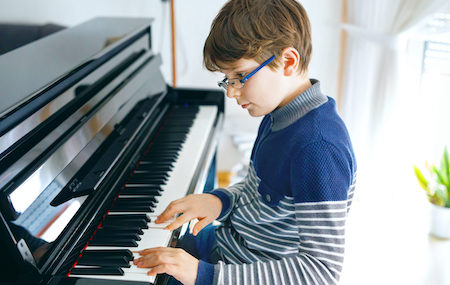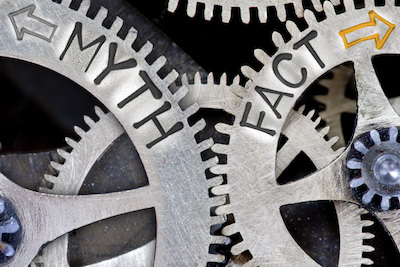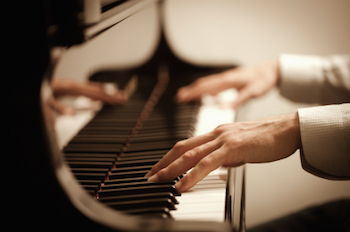What’s holding you back from playing the piano? Do you believe in one of these myths?
Myth #1 The more you practice, the better you’ll be
Despite the adage “practice makes perfect,” practice doesn’t make your piano playing perfect. Instead, perfect practice makes you a better player. A lot of people establish a routine, playing the same way over and over again without ever learning the right way to play. The more you focus on becoming better at your practice routine, that’s when you’ll start to see better results.
Myth #2 Don’t look at your hands while you play
Playing the piano is a careful orchestra of reading the music, moving your hands, and letting your body feel the rhythm. If you watch some of the greatest piano players in the world, you’ll notice they look at the keyboard, watching their fingers move effortlessly across the keys.
Myth #3 Hand size determines how good you’ll be
While it is true you shouldn’t start a child too young, whose hands are too small for total flexibility moving across the keys, it’s not as important as a person grows. If you enjoy playing the piano, you work out ways to play your favorite songs. As you get into more complex music, you’ll find ways to reach across the octaves and be able to create beautiful music.
Myth #4 Children learn faster than adults
While that may be true for learning a foreign language, it isn’t valid for playing the piano. As you age, you have a lot of experience behind you. Experience you can utilize as you sit down to play. You’ll recognize songs, making them easier to practice and play. You’ll have a greater understanding of rhythm. You’ll also have more patience to sit and play, and a better mindset to know how piano will fit into your life in the future.
Myth #5 Practice sessions should be regimented
When you work with some instructors, they may be very disciplined with their practice routines: warmups, scales, music. While it’s essential to have structure, it’s equally important to remember practice is all about learning. And having fun.
Myth #6 Learn a new piece from beginning to end
You don’t have to focus on playing a new piece from beginning to end every time. Pick out pieces you’re struggling with and practice them. Start your session with your favorite parts of the song. Perfect it as you go along. Then put it all together as you feel comfortable.
Myth #7 Most will never turn it into a career
Why do anything without a future? Some approach every hobby as if it should turn into a career. Piano is one of those rare hobbies that work as well when you’re seven as it does when you’re seventy. It’s a practice you can take with you throughout your life. And it can fit into your life in many ways, even to help you along with your career. How about music therapy? Or use it to help you with your podcast? Statistics show that music students have the highest percentage of people moving on into medical school. It’s a great tool to use for stress relief, as well as help with a memory boost.
Is now the time for you to begin playing the piano?




